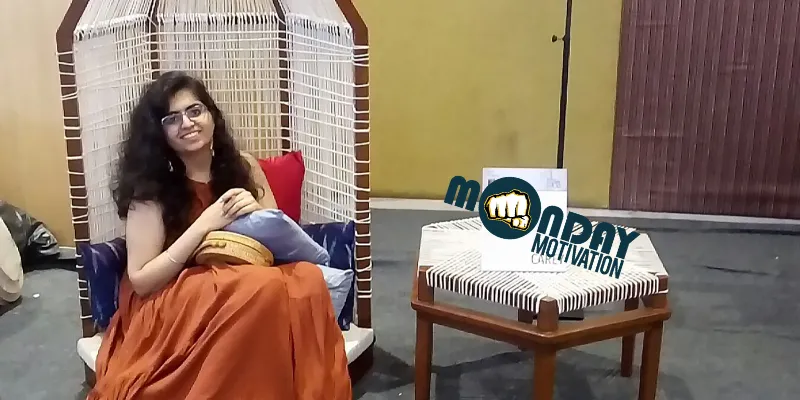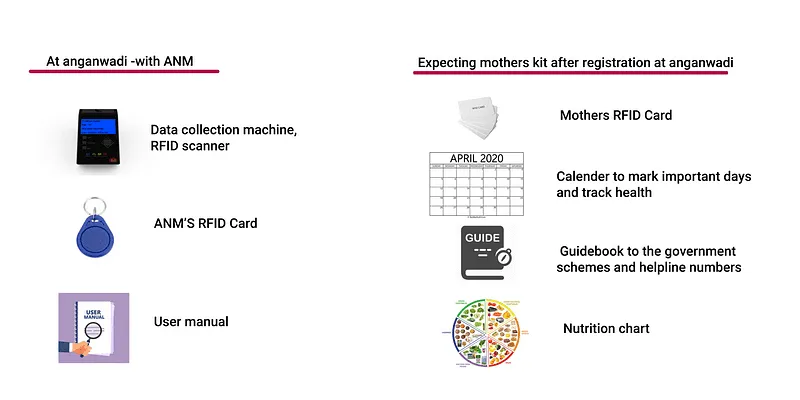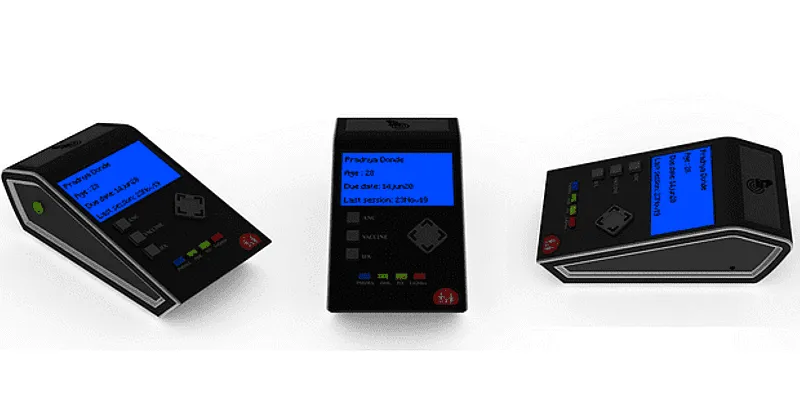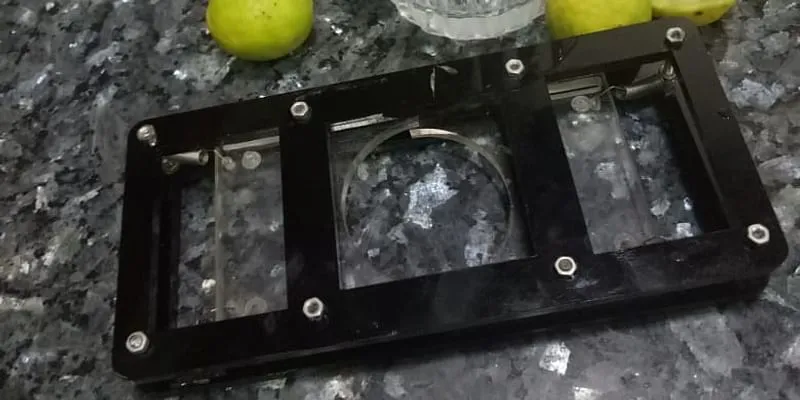This student from Chhattisgarh is developing a machine to make a difference in pregnant women’s lives
Anushka Arora is designing a machine that can help pregnant women from rural areas get access to better medical facilities and government schemes.
With two pregnant women from different backgrounds in the same house, this young student from Chhattisgarh knew something was not right. Around the time her sister-in-law was expecting, her house help Anu too was going to deliver a baby in the days to come.
When asked about her condition during pregnancy, Anu said she did not receive adequate medical facilities and treatment, and was quite worried about going through a C-section and the costs behind the procedure.
Moved by Anu’s plight, Anushka Arora, a third-year product design student at Pearl Academy, Mumbai Campus, decided to do something about the lack of medical facilities to pregnant women, especially in the rural regions.
She decided to create an accountability system or database in which all the schemes provided by the government for expecting mothers could be made accessible to ASHA (Accredited Social Health Activist) workers and ANMs (Auxiliary Nurse Midwife).
In simple words, the product should make these healthcare workers in the rural areas aware of the schemes, which should, in turn, help mothers at various accessible centres or in the comfort of their homes

Anushka Arora
While Anushka was active in college activities, she would make sure that she dedicated some time to develop her product and discuss it with her friends. This gave her encouragement and support to go ahead with this breakthrough project.
Chhattisgarh is one of the backward states in India and the mortality rate contributes a great deal to it. So, if the women in these areas are educated about the various benefits that they are eligible for, there can be a significant change.
“I was doing my research and a few questions that crossed my mind were whether the existing schemes provided by the government cover maternity care,” says Anushka, “To my shock, I realised that these schemes were not accessible to most women.”
In a conversation with Social Story, Anushka talks about her project and how she plans to go about it.
How it works
Talking about the product, she says, “Once the healthcare workers are familiarised with the machine, they can register these pregnant women”. “Once they are registered, they will be provided an RFID card.”
The machine, fitted with an RFID scanner, has the data of the services provided to the mothers. It also has the details of the main government schemes provided for expecting mothers, along with the helpline number.
Once the helpline number is clicked, the number attached to the specific RFID of the mother will receive a call, and they can express their specific concerns. After that, the LaQshya service, also a part of the system, will ensure that they get their maternity benefits during childbirth.

These machines will be provided to ASHA workers and ANMs. While ASHA workers will go to homes to collect data, ANMs will collect information from the Anganwadi centres.
Anushka has been in touch with one ANM in Bilaspur, Chhattisgarh, that tested the prototype. She actively takes feedback from the nurse there to make it more user-friendly.
Anushka worked with a doctor throughout to learn more and improve her product. The doctor, who works in the rural areas, suggested that she should get in touch with the health minister of the state, which could take her project to the next level.

The RFID machine
Achievements
As a student, Anushka has been coming up with innovative products during college events. “At the Pune Design Festival, I had designed a lemon squeezer. What stood out was how I recreated this simple machine,” says Anushka.

Easysqueezy lemon squeezer
At an event, ‘Pearl Portfolio’, she presented a unique furniture and lighting design that drew eyes from every corner. People even asked her if she was ready to sell it then and there. Anushka says such response to her innovations motivated her to do big things in life.
At another event, Anushka found herself meeting many like-minded people, who have been mentoring and working with her on different projects to this date. She is also doing her internship at Digital Impact Square by TCS.
"As the journey unfolded at the Academy, I got a chance to participate in some of the known art, culture and design festivals like the Kala Ghoda in Mumbai and Pune Design Festival," says Anushka, "The exposure I got in these events created a sense of responsibility in creating something that would bring a difference to the society.”
The COVID-19 lockdown
“Amid the COVID-19 lockdown, I am working on improving the device so that it can cater to all sections of the Indian population,” says Anushka, “After testing prototype one, there were a few modifications that needed to be made on the aesthetics of the machine as well. So, that is in progress,” she says.
Along with this, she is also working on designing a website and an app. This is to ensure that all the stakeholders across various levels can have easy access to the healthcare facilities that are being provided to the women through Anganwadi centres and other healthcare units.
Anushka explains that though the lockdown has created a gap in her college life as educational institutions are closed, the online classes organised by the academy helps her stay in touch with her education and her friends.
The way ahead
Anushka wants to get more feedback from healthcare workers as well as expecting mothers. She wants to create awareness about the machine in order to draw people’s participation.
To date, she has interviewed about 60 women from the rural and urban sectors to understand the problems they face. She has also met ASHA workers and ANMs to understand the work they do, and how they can be of help. Even though the lockdown has hindered the progress of her project, she has plans laid out for post-lockdown period.
“After the lockdown is lifted, I will be testing the final product to check for functionality and ease of use by the actual users,” she says, “I will be connecting with public healthcare centres to get the project verified. Thereafter, I plan to reach out to the health minister of Chhattisgarh and submit a project report.”
Edited by Javed Gaihlot









